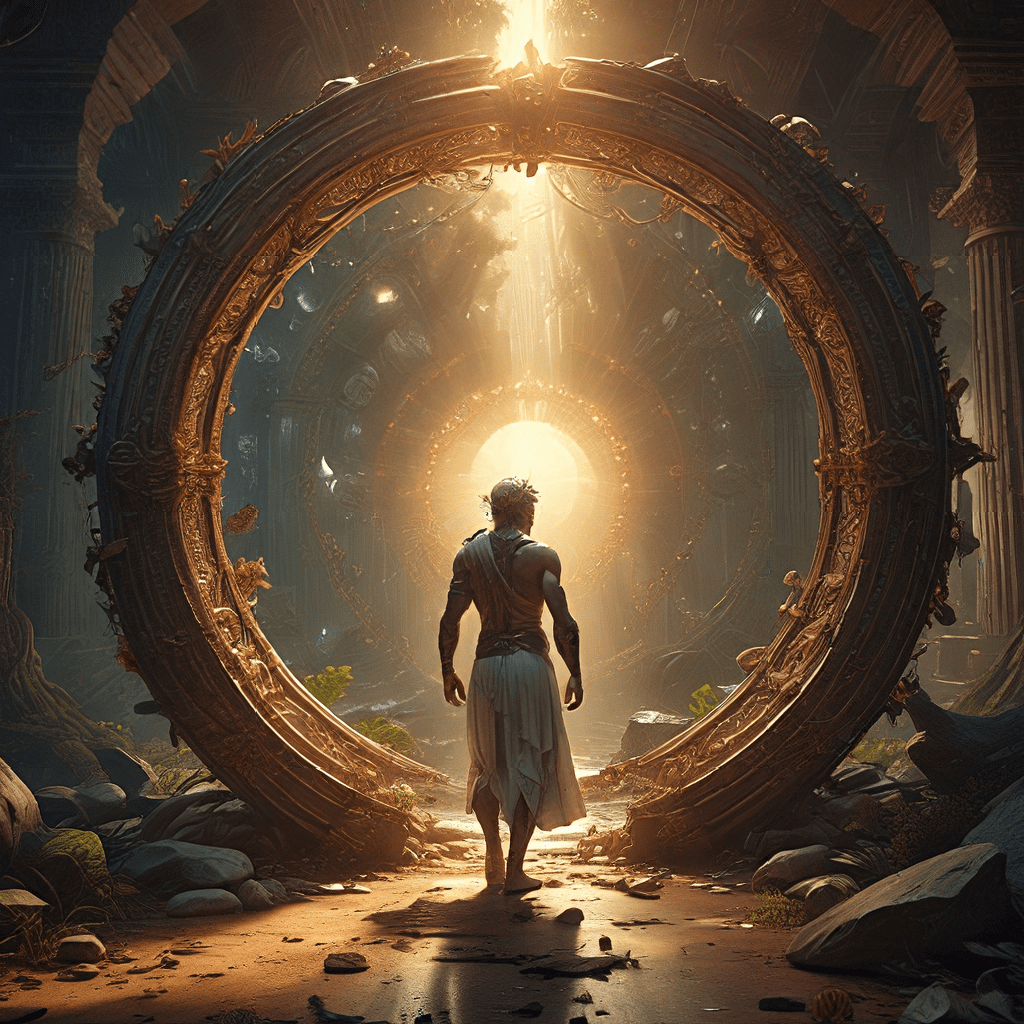1. Introduction: The Concept of Reincarnation
Reincarnation is a captivating concept that resonates with many across cultures and beliefs. It refers to the belief that after death, the soul is reborn into a new body. This cycle of death and rebirth continues until the soul achieves enlightenment or a specific goal. This concept transcends religious boundaries, appearing in ancient civilizations like Egypt, India, and Greece. Our journey today delves into the fascinating relationship between reincarnation and creation, exploring how this eternal cycle might influence our understanding of the universe.
2. The Cycle of Birth, Death, and Rebirth
At the heart of reincarnation lies the belief in a continuous cycle of birth, death, and rebirth. This cyclical view of life isn’t just about the physical body but extends to the essence of our being – the soul. The soul, often considered an immortal part of us, carries our experiences and karma from one life to the next.
Karma, a central concept in many Eastern philosophies, acts as a guiding force in reincarnation. It represents the law of cause and effect, shaping our experiences based on the actions we take in each lifetime. Every action, every thought, and every word we utter leaves an imprint on our karmic account. This karma, in turn, influences the circumstances and challenges we face in our subsequent lives. Just as a seed contains the blueprint for a plant, our past actions guide the course of our future lives.
3. The Role of the Soul in Reincarnation
The concept of reincarnation revolves around the soul, the eternal spark within us. While the physical body perishes, the soul, according to this belief, endures. The soul, like a traveler, carries the accumulated knowledge and experiences from past lives. These experiences, both positive and negative, influence our personality, talents, and tendencies in our present life.
Imagine a soul that has lived countless lives, experiencing a vast spectrum of emotions, joys, and sorrows. Each life contributes to the soul’s growth and evolution, shaping its understanding of the world. This accumulation of wisdom and knowledge from past lives can manifest in our present-day talents, interests, and even fears. Some people may be drawn to certain professions, cultures, or artistic expressions, perhaps due to experiences in past lives.
4. The Spiritual Purpose of Reincarnation
Reincarnation offers a compelling perspective on life’s purpose. Instead of viewing life as a single, finite journey, it presents it as a series of lessons and opportunities for spiritual growth. The purpose of reincarnation, according to many traditions, is to learn, evolve, and ultimately achieve spiritual liberation. Each lifetime becomes a classroom, offering opportunities to refine our character, expand our compassion, and develop our understanding of the divine.
Just as a student progresses through various grades, our souls progress through different stages of spiritual development. As we navigate life’s challenges and triumphs, we acquire wisdom and understanding. This accumulation of knowledge and experience helps us evolve as spiritual beings, eventually reaching a point of enlightenment or spiritual liberation.
5. Reincarnation and the Creation Myth
Reincarnation’s cyclical nature connects it to many creation myths. While creation myths often describe a beginning, reincarnation offers a cyclical perspective. Instead of a singular creation event, reincarnation suggests a continuous cycle of birth, death, and rebirth. This cyclical view can be seen as a natural extension of some creation stories, suggesting that the universe isn’t a static entity but an evolving, ever-changing process.
In some creation myths, the universe is viewed as a reflection of the divine. Reincarnation, in this context, could be seen as a way for the divine to experience and understand itself through the countless lives of individual souls. This perspective highlights the interconnectedness of all things and suggests a deeper purpose for our existence.
6. Scientific Perspectives on Reincarnation
While reincarnation remains a spiritual belief, modern science continues to explore the possibility of consciousness surviving physical death. Some scientists are intrigued by the idea of a non-physical aspect of our being that might persist beyond the demise of our bodies. Evidence from near-death experiences (NDEs) and other research areas sparks curiosity about the nature of consciousness and its potential for transcending physical limitations.
Even though there’s no definitive scientific proof of reincarnation, the exploration of consciousness, especially through advancements in neuroscience and quantum physics, may shed new light on the nature of reality. The mysteries surrounding consciousness and the potential for life after death continue to intrigue scientists and philosophers alike.
7. The Ethical Implications of Reincarnation
The concept of reincarnation carries profound ethical implications. The belief in karma underscores the importance of our actions, as they shape our future experiences. This creates a sense of personal responsibility for our thoughts and deeds, as they have consequences beyond this lifetime. It encourages us to act with kindness and compassion, knowing that our choices have long-lasting effects.
Furthermore, understanding reincarnation can lead to greater tolerance and understanding. If we believe that we have lived countless lives and may be encountering the same souls repeatedly, we might develop a deeper sense of empathy for others. This understanding can help us approach life’s challenges with greater patience, forgiveness, and a willingness to see the interconnectedness of all beings.




